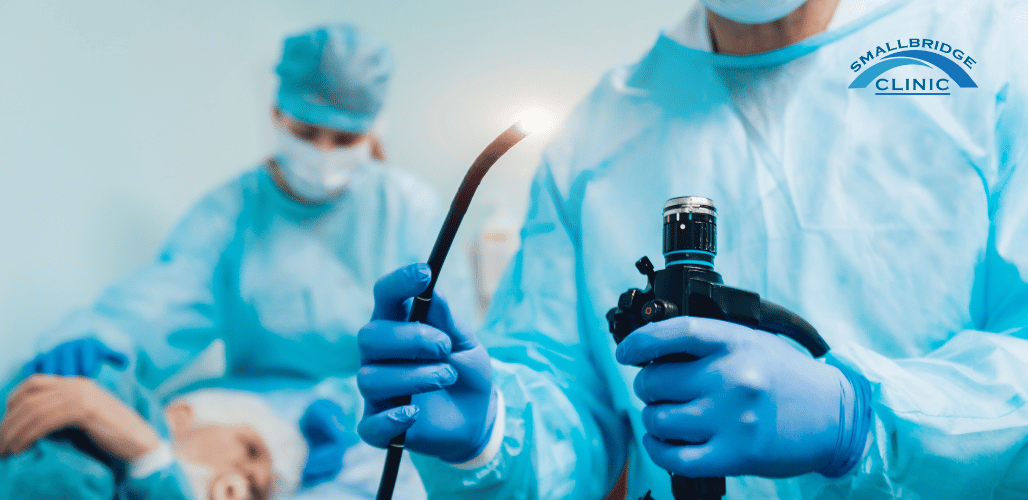
Gastrointestinal Endoscopy Services
Gastrointestinal Endoscopy Services
Gastrointestinal endoscopy services involve the use of an endoscope to examine the interior lining of the gastrointestinal (GI) tract. These procedures are performed for both diagnostic and therapeutic purposes. Here are the primary types of GI endoscopy services following grant of CQC registration:
- Esophagogastroduodenoscopy (EGD):
- Examines the esophagus, stomach, and duodenum.
- Used to diagnose conditions like GERD, ulcers, tumors, and celiac disease.
- Can also be therapeutic, such as dilating strictures or removing foreign bodies.
- Colonoscopy:
- Inspects the entire colon and rectum.
- Screens for colorectal cancer and polyps.
- Can remove polyps, biopsy abnormal tissues, and treat bleeding.
- Sigmoidoscopy:
- Examines the rectum and sigmoid colon.
- Often used for screening for colorectal cancer and investigating rectal bleeding or changes in bowel habits.
- Endoscopic Retrograde Cholangiopancreatography (ERCP):
- Combines endoscopy and fluoroscopy to diagnose and treat conditions of the bile ducts and pancreatic ducts.
- Useful for removing gallstones, inserting stents, and diagnosing pancreatitis.
- Endoscopic Ultrasound (EUS):
- Combines endoscopy and ultrasound to obtain images and information about the digestive tract and surrounding tissues and organs.
- Can help in the staging of cancers, evaluating chronic pancreatitis, and guiding fine-needle aspiration (FNA) for biopsy.
- Capsule Endoscopy:
- Involves swallowing a small, pill-sized camera that takes pictures of the small intestine.
- Useful for diagnosing conditions like Crohn’s disease, celiac disease, and obscure GI bleeding.
- Therapeutic Endoscopy:
- Involves procedures such as polypectomy, hemostasis, stent placement, and endoscopic mucosal resection (EMR).
- Used for treating strictures, removing tumors, and managing bleeding.
Indications for GI Endoscopy
- Persistent upper abdominal pain or heartburn.
- Unexplained anemia.
- Chronic diarrhea or constipation.
- Unexplained weight loss.
- Screening for colorectal cancer .
- Monitoring of known conditions like Barrett’s oesophagus or inflammatory bowel disease (IBD).
These services will only be available once CQC registration has been granted (CQC registration applied for).
